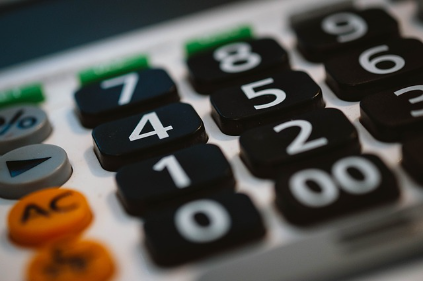현재 장바구니가 비어 있습니다!

[2024-08-07 Korea Economic News] Dollar-Won Exchange Rate Surges: Strong Custody Buying Amid Foreign Selling
USD-KRW Exchange Rate Surges Amid Market Downturn
Impact of Foreign Selling on the USD-KRW Exchange Rate
In a significant move in the financial markets, the USD-KRW exchange rate ended the day at 1,374.80 won, reflecting an unprecedented rise attributed to a steep decline in the stock market and substantial foreign selling in the KOSPI index. This situation has sent ripples across the trading community, influencing various segments of the economy. The daily change exceeded 20 won, underscoring the volatility that is currently characterizing the currency exchange landscape.
According to Korea Economic News, foreign investors have been selling off KOSPI stocks aggressively, which has contributed to the rising demand for the dollar. This influx into the dollar has been seen as a safe-haven move in uncertain times.
The dynamic between foreign selling and the USD-KRW exchange rate represents a broader trend that has significant implications for investors and economic policies alike. As the South Korean market continues to face challenges, including external economic pressures, the rise in the USD-KRW exchange rate might signal stronger capital outflows, leading to further fluctuations. Investors are keenly watching these developments, particularly with ongoing uncertainty surrounding global economic conditions.
Understanding the KOSPI and Its Correlation with Exchange Rates
The KOSPI, or the Korea Composite Stock Price Index, serves as an essential barometer for the South Korean economy. As the markets react to unfolding international narratives, the KOSPI has experienced notable swings. Recent trends indicate that as foreign entities shift their portfolios—often to cash or safer assets—this behavior directly impacts the exchange rates. Korea Economic News highlighted that the concerted selling by foreign investors has been a significant driver of the recent shifts in the USD-KRW currency pair.
This relationship poses questions for economists and investors alike. How tightly are currency fluctuations tied to the performance of the KOSPI? And what does this mean for potential recovery? The reality is that market sentiment plays a pivotal role, and current foreign selling patterns suggest cautiousness among investors regarding the regional economic outlook.
The Role of Currency in Economic Health
The upward trend of the USD-KRW exchange rate not only reflects immediate market reactions but also speaks to longer-term economic fundamentals. When the value of the won declines against the dollar, it can impact inflation, import costs, and ultimately consumer spending. Korea Economic News mentioned how sustained high exchange rates might burden consumers with higher prices on imported goods, which can stymie economic recovery efforts in South Korea.
This situation opens avenues for potential repositioning in the market. As the exchange rate continues to fluctuate, investors may need to adapt their strategies, considering potential opportunities in both domestic and international markets. In the backdrop of foreign selling, the long-held strategy of “buying the dip” may reap rewards or spell further risks, depending on how the economic narrative unfolds in the coming weeks and months.
Conclusion: Navigating a Volatile Currency Landscape
The fluctuation of the USD-KRW exchange rate, currently propelled by foreign selling activities in the KOSPI, illustrates the interconnectedness of global markets. As investor focus sharpens on the implications of exchange rate adjustments, there’s an underlying need for adaptive economic strategies. Investors and policymakers must remain vigilant, keeping a keen eye on patterns of foreign investment and currency movements.
In a time where economic headlines dominated by foreign investor behavior shape the financial landscape, one must look to resources that can provide additional insights. A comprehensive understanding of how the USD-KRW exchange rate influences and reflects market sentiments can empower informed decision-making.
For more detailed information and ongoing analysis about these trends, feel free to visit Walterlog where you can explore in-depth articles and resources that can bolster your understanding of the current economic climate.